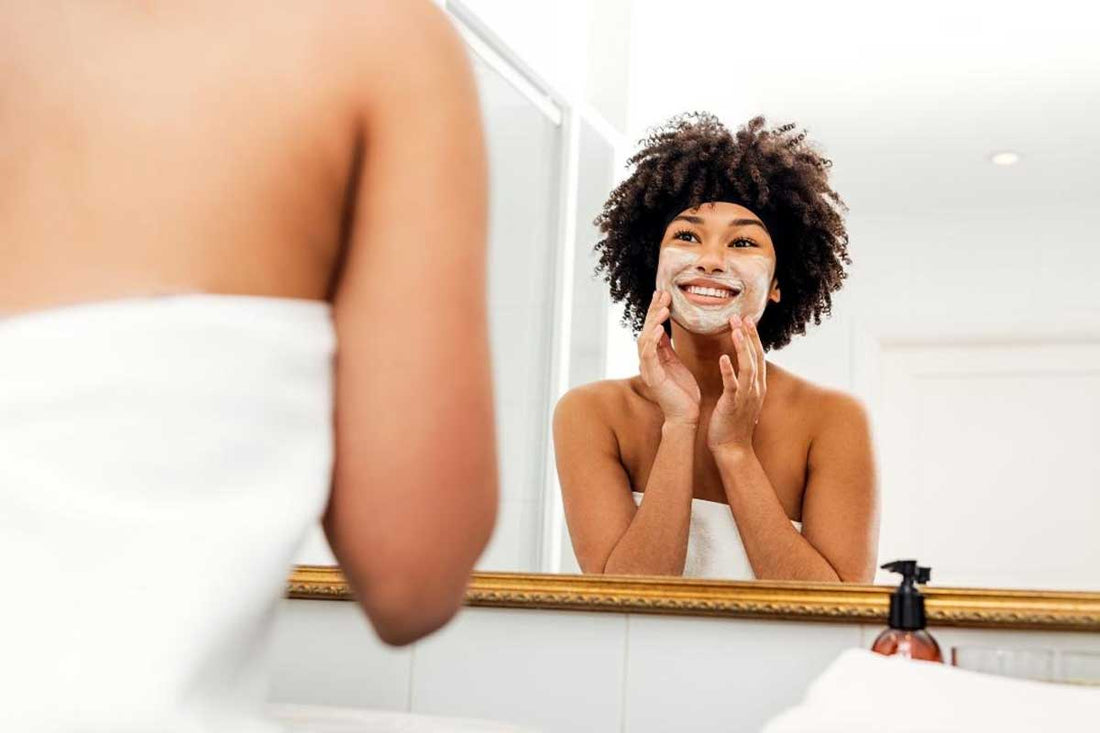Cleansing has become a little confusing. How often should you wash your face? What about your hands? Should you use a mitt, loofah, puff, flannel, sponge or your bare hands? What's the optimum water temperature for washing your body, and should you shower every day?
Tips for Proper Body Washing
You already know it’s important to bathe and washup regularly, but how well you do so makes a huge difference. In fact, you might be making some rookie mistakes and not washing your body correctly. Here’s how to wash these body parts the right way.

Washing Your Face
It might seem simple, but washing your face takes time and attention. Doing it the right way could make the difference between beaming skin and an acne breakout.
How you wash your face can make a difference in your appearance. Follow these tips from dermatologists to help you keep your face looking healthy.
- Properly remove all your makeup first. Use a gentle makeup remover to get the job done before you start actually cleansing, especially before bed.
- Use a gentle, non-abrasive cleanser that does not contain alcohol. Our Don’t Be So Sensitive slab has no scent, no color, and is easy on the skin.
- Wet your face with lukewarm water and use your fingertips to apply cleanser. Using a washcloth, mesh sponge, or anything other than your fingertips can irritate your skin.
- Resist the temptation to scrub your skin because scrubbing irritates the skin.
- Rinse with lukewarm water and pat dry with a soft towel.
- Apply moisturizer if your skin is dry or itchy. Be gentle when applying any cream around your eyes so you do not pull too hard on this delicate skin.
- Limit washing to twice a day and after sweating. Wash your face once in the morning and once at night, as well as after sweating heavily. Perspiration, especially when wearing a hat or helmet, irritates the skin. Wash your skin as soon as possible after sweating.

Washing Your Hands
Keeping hands clean is one of the most important steps we can take to avoid getting sick and spreading germs to others. Many diseases and conditions are spread by not washing hands with soap and clean, running water.
Regardless of what type of soap you use, the most important thing is to make sure that you are washing your hands correctly. It's not hard, we promise. Just follow these five basic steps:
- Wet your hands. Turn on the water and wet your hands.
- Apply soap. Many folks like to apply soap first and then wash it away when they turn on the water. Soap needs to be used on wet hands to work. You’ll be able to see suds if you’re doing it right.
- Rub your hands together. Make sure to scrub between your fingers and up your forearm. Do this for 20 - 30 seconds at least!
- Rinse thoroughly. You want to make sure that any of the germs the soap kicked up has washed off your hands and down the drain.
- Dry your hands. No, not on the kitchen towel you use to dry dishes, carry hot plates or clean off the counter! Dry hands on a designated hand towel or use a paper towel.

Washing Your Body
The shower is a great place to think about completely random topics since it can be one of the few times when you are alone and feel relaxed. And while you’re soaping up, you may have wondered how to properly wash your body. For instance, maybe you question whether you’re using the right soap—or if you even need to use a cleanser at all. Or perhaps you ponder whether you’re washing your body in the right sequence. Is there even a right order?
There is no guidebook or definitive study showing how to properly wash your body. However, experts do have some general advice about how your washing habits can affect your skin overall.
- The first thing you might want to consider is to choose a cleanser for your particular skin type. For example, people with dry or sensitive skin generally feel better using a mild soap without fragrances or alcohol because those ingredients can irritate their skin.
- If you don’t have any specific skin concerns, then you really just need water and your favorite soap.
- When it comes to the specific order that you wash your body parts, there’s currently little to no research that proves washing in a specific direction can spread bacteria, viruses, or fungi from one area of your body to another. And spreading these microorganisms around your body isn’t generally harmful unless you’ve picked up a pathogen, such as ringworm.
- You might find it easiest to tackle the areas where soap is recommended first to get them out of the way. This would include the underarms, groin, genital area, and chest and back (if you get acne in those spots), as well as your hands and feet.
- Finally, keep in mind that soaping up too much (as in numerous times per day) or using excessively hot water can potentially irritate your skin.
- Make sure to towel-dry just a bit before applying any moisturizer to your body. You’ll want to use moisturizing cream right out of the shower for best results because it seals hydration into your skin.
What Not To Do When Bathing
Whether you choose to shower or bathe, there are some habits to avoid when washing your body:
- Don’t use water that’s too hot. It might feel relaxing to drench your skin with hot water, but doing it regularly can damage your skin and make it more prone to dryness.
- Don’t overexfoliate your skin. You don’t need to scrub your skin hard or repeatedly to get dirt and oil off its surface. Overexfoliation leaves your skin prone to damage and dryness.
- Don’t skip the face wash. It’s fine to get your face wet in the shower, but it may be too sensitive for bodywash. The best way to completely cleanse your face is to use a product that’s made for it, like a gentle, plant-based soap. You should also wash your face regularly apart from showers and baths.
- Don’t forget to replace your loofah. Any loofah, washcloth, or scrubbing sponge should be kept clean and dry when not in use in your shower or bathtub. Bacteria can grow in these bath time accessories if they’re not dried and stored correctly.

